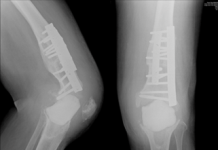Setting up and running the professional doctorate programme at Nottingham Trent brought together dimensions of my experience in education, research, philosophy, rock-climbing/mountaineering, so constituting the basis for rethinking the practice of research.
The professional doctorate programme at Nottingham Trent in 2008 I set up working with two colleagues from Social Science and Law. It provided an intensive programme in research methodology common to the three possible degrees constituting this programme. By 2010 we had centres in London and Hong Kong.
Networking was at the heart of my experience of managing innovation in secondary education in the 1980s-90s. In 2009 following a conference in London organized by leaders in the field of practice-based research in the UK at Middlesex and the UKCGE, we set up what later became the International Association for Practice Doctorates, IAPD. We now have almost 400 members from around the globe. Annually the IAPD organizes short conferences and workshops, mainly based in London.
Pedagogically my work had also been influenced by my own doctoral research: a deconstructive reading of the complex relationship of the work of managers at one school, ‘Lakeside’, and national policy. It proved to be transformative. My identity changed radically from being a scientist with a background in an incomplete PhD in Chemistry and science education to a researcher who draws from philosophical practice at the leading edge of European philosophy. As scholarship it immersed me in the writings of Heidegger, and his descendants, not least Foucault and Gadamer.
Being a new teacher in higher education in 2005 at Nottingham Trent I had been fortunate to meet with Nick Peim at Birmingham. As an experienced philosopher and researcher, Nick had been greatly influenced by Derrida and Lacan. We shared a common interest in Heidegger’s work. At the time of setting up the professional doctorate Nick and I had already written a paper deconstructing the process of formal education that later was developed further into a book: Rethinking the Education Improvement Agenda. From our readings of Heidegger’s work our critical philosophical approach sought to explore some of the implications of what we identified as the ‘principle of assessment’.
My interest in Derrida’s philosophy was strengthened from teaching Heidegger’s and Husserl’s philosophies, which had also provided the young Derrida with his opening work on deconstruction. And from my own Derridean reading of Vygotsky’s work. Derrida’s writings on justice connected me back to my earlier work as a teacher in a number of communities needing considerable support. The significant drive I have to understand more about the human condition, then, came from my experiences in mountaineering/ rock-climbing and my earlier work in teaching. I came to appreciate first-hand the complex inter-relationship of practice and education, and the significance of literature and poesy in giving expression to experience.
Now as a researcher-philosopher-educationalist I have become evermore interested in the radical rethinking of research, consonant with the limits of our capacity as human beings to push towards new languages and thinking in our efforts towards exceeding every economy of what is given in practice.
Dr Kevin J. Flint
Reader in Education
Telephone: 01158483971
Mobile: 07531754709
email: kevin.flint@ntu.ac.uk








